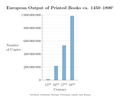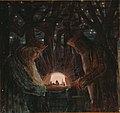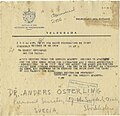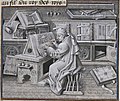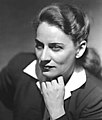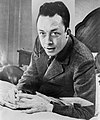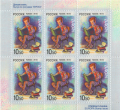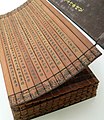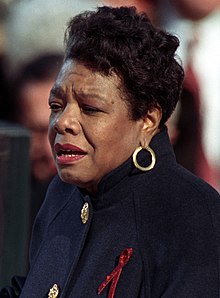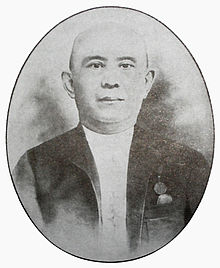Portal:Literature
Introduction

Literature is any collection of written work, but it is also used more narrowly for writings specifically considered to be an art form, especially novels, plays, and poems. It includes both print and digital writing. In recent centuries, the definition has expanded to include oral literature, much of which has been transcribed. Literature is a method of recording, preserving, and transmitting knowledge and entertainment. It can also have a social, psychological, spiritual, or political role.
Literary criticism is one of the oldest academic disciplines, and is concerned with the literary merit or intellectual significance of specific texts. The study of books and other texts as artifacts or traditions is instead encompassed by textual criticism or the history of the book. "Literature", as an art form, is sometimes used synonymously with literary fiction, fiction written with the goal of artistic merit, but can also include works in various non-fiction genres, such as biography, diaries, memoirs, letters, and essays. Within this broader definition, literature includes non-fictional books, articles, or other written information on a particular subject. (Full article...)
General images -
Jonathan Strange & Mr Norrell is the 2004 first novel by British writer Susanna Clarke. An alternative history set in 19th-century England around the time of the Napoleonic Wars, it is based on the premise that magic once existed in England and has returned with two men: Gilbert Norrell and Jonathan Strange. Centring on the relationship between these two men, the novel investigates the nature of "Englishness" and the boundaries between reason and unreason, Anglo-Saxon and Anglo-Dane, and Northern and Southern English cultural tropes/stereotypes. It has been described as a fantasy novel, an alternative history, and a historical novel. It inverts the Industrial Revolution conception of the North/South divide in England: in this book the North is romantic and magical, rather than rational and concrete.
The narrative draws on various Romantic literary traditions, such as the comedy of manners, the Gothic tale, and the Byronic hero. The novel's language is a pastiche of 19th-century writing styles, such as those of Jane Austen and Charles Dickens. Clarke describes the supernatural with mundane details. She supplements the text with almost 200 footnotes, outlining the backstory and an entire fictional corpus of magical scholarship. The novel was well received by critics and reached number three on the New York Times best-seller list. It was longlisted for the 2004 Man Booker Prize and won the 2005 Hugo Award for Best Novel.
Selected excerpt
| “ | I was awakened the next morning by an eerie sense of something unreal and terrible. I fought to adjust myself, and rose on the bed to peer out. I could see nothing except a yellow mass of something plastered against the window, and I fell back on the bed. Strangely, at the same time, I had a curious sensation of being both awake and in full possession of my senses, and in the grip of some awful nightmare. I was vaguely aware of a noise outside, and finally identified it positively as Buck's raging voice. There was a heavy, nauseous scent in my nostrils, but finally I shook myself awake and leaped out of bed. Just at that moment the window shattered and the terrible, complete reality of what was outside burst upon me with all the sharpness of a stinging whip lash. | ” |
| — Jim Kjelgaard, "The Fangs of Tsan-Lo" | ||
More Did you know
- ... that Samuel Minturn Peck was the first Poet Laureate of Alabama, a title created for him, from 1930 until his death in 1938?
- ... that James McBride was described as "clearly stunned" when his novel The Good Lord Bird won the National Book Award for Fiction?
- ... that Arishima Ikuma, Japanese novelist, published his new-style poems and short stories as a vehicle to introduce the works of the French impressionist painter Paul Cézanne to the Japanese public?
- ... that German-born Jewish Egyptologist Käte Bosse-Griffiths published a novel in the Welsh language?
- ... that John Fowles' postmodern novel The French Lieutenant's Woman both emulated and parodied popular Victorian novels, like those of Charles Dickens and Thomas Hardy?
Selected illustration
Did you know (auto-generated) -

- ... that Peter Demetz, who taught German literature at Yale University from 1956 to 1991, was born in Prague where he was persecuted under the Nazis and escaped the Communist regime in 1949?
- ... that Hadriana in All My Dreams, published in 1988, was the first novel by a Haitian author to win a major French literary award?
- ... that there is a Gambian literature even though it has been argued that there is "minimal basis" for its existence?
- ... that the pastor John Littlejohn went from selling pornographic literature to sailors as a youth to protecting the Declaration of Independence?
- ... that Imagining Mars: A Literary History "presents a compelling case that 'Mars matters'"?
- ... that The Man Without Talent is an I-novel, a genre of semi-autobiographical confessional literature that has been popular in Japan since the early twentieth century?
Today in literature
- 1865 - Mark Twain's story The Celebrated Jumping Frog of Calaveras County is published in the New York Saturday Press.
- 1874 - Clarence Day, American author born
- 1889 - William Allingham, Irish author died
- 1906 - Klaus Mann, German writer born
- 1922 - Marcel Proust, French novelist died
- 1926 - George Bernard Shaw refuses to accept the money for his Nobel Prize, saying, "I can forgive Alfred Nobel for inventing dynamite, but only a fiend in human form could have invented the Nobel Prize."
- 1939 - Margaret Atwood, Canadian writer (Surfacing, The Handmaid's Tale) born
- 1941 - Émile Nelligan, Quebec poet died
- 1946 - Alan Dean Foster, American author born
- 1952 - Paul Eluard, French poet died
- 1957 - Seán Mac Falls, Irish-born poet born
- 1966 - Jorge Camacho, Spanish poet born
- 1985 - Calvin and Hobbes, a comic strip by Bill Watterson, is first published.
- 1999 - Paul Bowles, American novelist died
Topics
| Literature: | History of literature · History of the book · Literary criticism · Literary theory · Publishing |
| By genre: | Biography · Comedy · Drama · Epic · Erotic · Fable · Fantasy · Historical fiction · Horror · Mystery · Narrative nonfiction · Nonsense · Lyric · Mythopoeia · Poetry · Romance · Satire · Science fiction · Tragedy · Tragicomedy · more... |
| By region: | African literature · Asian · European · Latin American · North American · Oceanic |
| By era: | Ancient literature · Early medieval · Medieval · Renaissance · Early Modern · Modern |
| By century: | 10th century in literature · 11th · 12th · 13th · 14th · 15th · 16th · 17th · 18th · 19th · 20th · 21st |
| Recent: | 2018 in literature· 2017 · 2016 · 2015 · 2014 · 2013 · 2012 · 2011 · 2010 · 2009 · 2008 · 2007 · more... |
Categories
Related portals
| Concepts: | |
| Genres: | |
| Religions: |
Things you can do
Related WikiProjects
WikiProjects related to literature:
| Concepts: | Biographies · Books · Comics · Magazines · Manga · Novels · Poetry · Short stories · Translation studies |
| Genres: | Alternate history · Children's literature · Crime · Fantasy · Horror · Mythology · Romance · Science fiction |
| Authors: | Honoré de Balzac · Roald Dahl · William Shakespeare |
| Series: | Artemis Fowl · Chronicles of Narnia · Discworld · Harry Potter · His Dark Materials · Hitchhiker's Guide to the Galaxy · Inheritance Cycle · James Bond · King Arthur · Middle-earth · Percy Jackson · Redwall · A Series of Unfortunate Events · Shannara · Sherlock Holmes · A Song of Ice and Fire · Star Wars · Sword of Truth · Twilight · Warriors · Water Margin · Wizard of Oz |
| Regions: | Australian literature · Indian literature · Persian literature |
Associated Wikimedia
The following Wikimedia Foundation sister projects provide more on this subject:
-
Commons
Free media repository -
Wikibooks
Free textbooks and manuals -
Wikidata
Free knowledge base -
Wikinews
Free-content news -
Wikiquote
Collection of quotations -
Wikisource
Free-content library -
Wikiversity
Free learning tools -
Wiktionary
Dictionary and thesaurus


